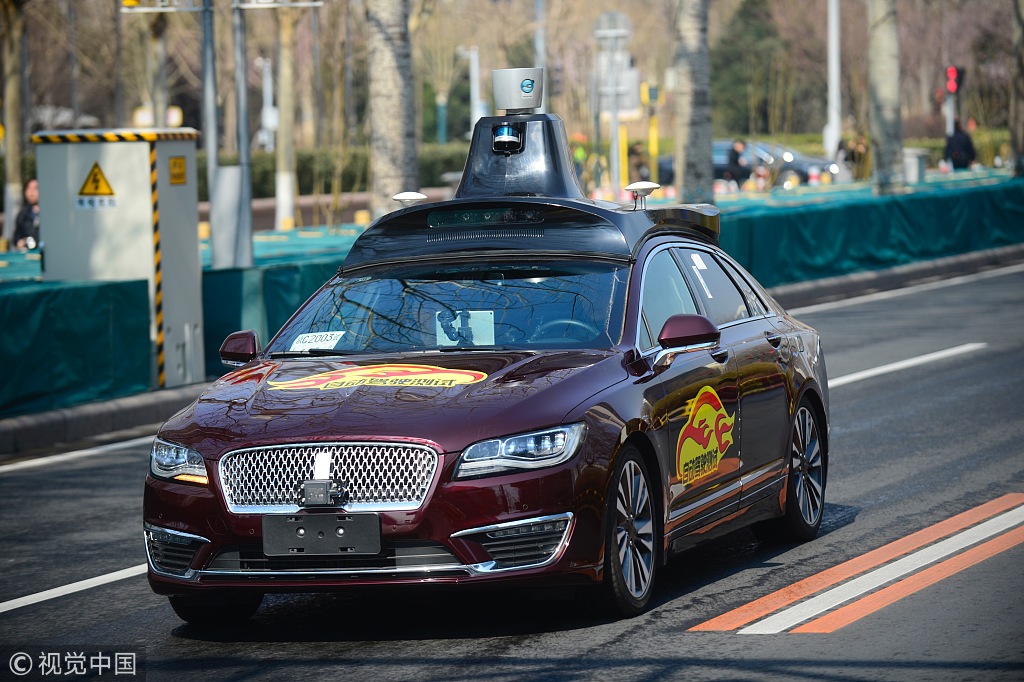Guidelines to ensure safe self-driving vehicle tests


China released a national guideline on road tests for self-driving vehicles on Thursday, as part of a broader drive to accelerate the development of the technology and gain the advantage in commercializing such vehicles.
The guideline, which was jointly issued by the Ministry of Industry and Information Technology, the Ministry of Public Security and the Ministry of Transport, allows local authorities to evaluate local conditions and arrange road tests for autonomous vehicles. It states that the test vehicles should be passenger or commercial automobiles, not low-speed vehicles or motorcycles.
According to the regulation, which will take effect on May 1, test vehicles should be able to switch between self-driving and conventional driving in order to ensure the test driver can quickly take over in case of a malfunction.
Moreover, test applicants must be independent legal entities registered in China, and have to first complete tests in designated closed zones before conducting road tests.
Xin Guobin, vice-minister of industry and information technology, said: "Road testing for self-driving vehicles is a complicated project and safety should be the top priority."
He added that car manufacturers should intensify their efforts in the research and development of self-driving technology, to offer more vehicles with safe and reliable performance.
The government is studying how to improve road infrastructure in order to better adapt to the self-driving vehicles, according to the Ministry of Transport.
Beijing issued the nation's first guideline for road tests of autonomous vehicles in December and unveiled a closed testing ground for autonomous cars in February.
In addition, on March 1, the authorities in Shanghai issued the country's first road test licenses to two smart-car makers, SAIC Motor Corp Ltd and electric vehicle startup Nio Auto.
"The national guideline on self-driving vehicles will regulate the whole industry, providing a reference and guidance for local authorities that have yet to issue such guidelines," said Tao Ji, technical director of Baidu Inc's automatic driving department.
Tao added that safety is the priority in the R&D, design, manufacturing and road tests of self-driving vehicles. Baidu has already obtained road test licenses for its self-driving vehicles in Beijing and Pingtan, Fujian province.
Li Keqiang, a professor of the department of automotive engineering at Tsinghua University, said: "Safety comes first for self-driving cars." Pointing to the recent fatal accident involving a pedestrian and an Uber Technologies Inc self-driving car in the United States, he called for car manufacturers to establish safety management systems.
"We still need more time before we can see highly or totally autonomous vehicles. This depends on advances in technology, social recognition and the construction of road and telecommunication infrastructure," Li said.




































